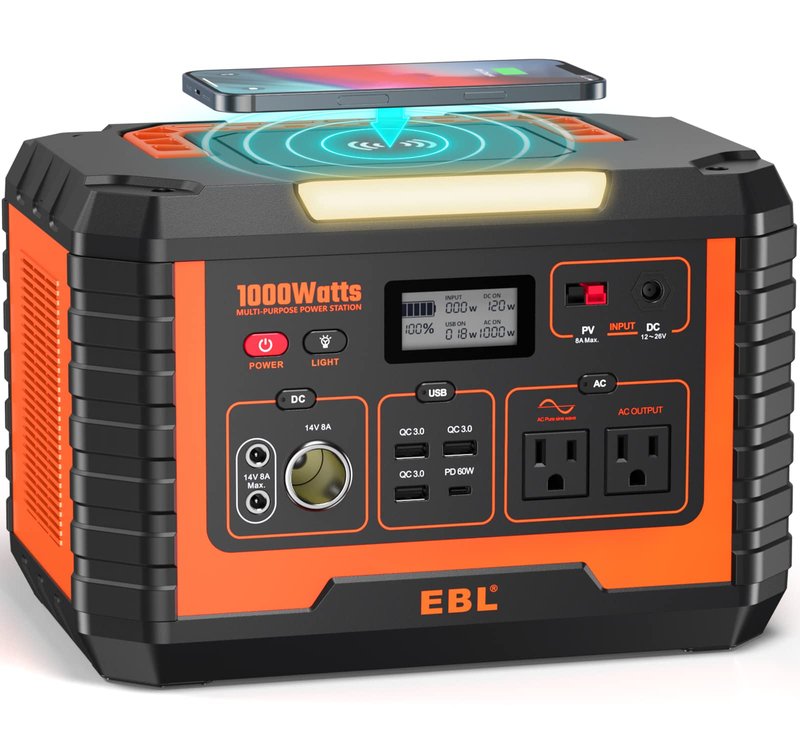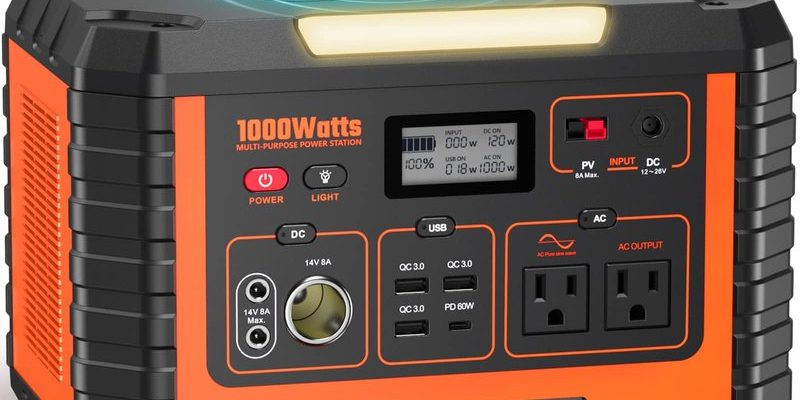
A power station, also known as a portable power bank or battery-powered generator, is often quieter, more eco-friendly, and generally easier to transport than your average generator. Brands like Jackery and Goal Zero have made significant strides in this area, providing convenient solutions for energy needs. But can they truly replace a generator? Here’s what you need to know.
Understanding Power Stations
Power stations are compact units designed to store electrical energy. They usually come with a built-in battery, inverter, and various ports for charging devices. Imagine them as a toolbox filled with energy—great for charging smaller electronics like laptops, phones, and even small appliances during an outage.
One of the most significant advantages of a power station is its quiet operation. Unlike gas generators that can roar to life and drown out conversation, power stations run silently, making them perfect for outdoor activities or if you’re simply trying to enjoy a peaceful evening at home.
However, power stations do have limitations. They can only store a certain amount of energy, measured in watt-hours (Wh). Depending on the model, this can range from a few hundred to several thousand watt-hours. It’s essential to assess your energy needs to see if a power station can handle your demands.
How Generators Work
Generators, on the other hand, typically run on gasoline, propane, or diesel and convert mechanical energy into electrical energy. Think of them as the heavy lifters in the energy world. They can provide a continuous power supply for larger appliances, like refrigerators or air conditioners, making them invaluable during extended power outages.
When you fire up a gas generator, it doesn’t just sit there. It produces significant power, but it comes at a cost—both in fuel consumption and noise levels. Many homeowners in Zip Code 96805 prefer generators for their reliability, especially during storms or other emergencies when power might be out for days.
A generator’s power output (measured in watts) can often exceed that of a power station, allowing you to run multiple appliances simultaneously. However, the trade-off is that generators require regular maintenance, fuel management, and can be quite noisy.
Comparing Power Stations and Generators
Here’s where it gets interesting. While both power stations and generators serve the same fundamental purpose—providing electricity—there are critical differences to consider:
- Noise: Power stations are silent, while generators can be loud.
- Fuel Type: Power stations rely on stored battery power; generators need fuel.
- Portability: Power stations are typically lighter and easier to move.
- Capacity: Generators usually have a higher power output compared to most power stations.
The choice ultimately comes down to your specific needs. Do you require power for a small camping trip, or do you need to run essential home appliances during a blackout?
Can You Use A Power Station Instead of a Generator?
Here’s the thing: Yes, you can use a power station instead of a generator, but with some caveats. If your primary goal is to power small devices like phones, laptops, or even a mini-fridge, a power station might be your best bet. They’re user-friendly, require no complicated setup, and you won’t have to deal with fuel.
However, if you’re looking to power significant household appliances like your entire home’s heating system or multiple high-wattage devices at once, a generator is likely a better option. The higher wattage output of generators makes them more suited for these heavy-duty tasks.
Let’s say you’re in Zip Code 96805 during a storm, and the power goes out. If you have a power station with sufficient watt-hours, you might recharge your phone, keep the Wi-Fi running, and power a small heater for a bit—enough to keep things comfortable. On the other hand, a generator could power your fridge and other critical appliances to keep your household running.
Considerations for Zip Code 96805
Living in Zip Code 96805 means you’re likely accustomed to certain weather patterns, which can influence your choice between a power station and a generator. For example, during hurricane season or tropical storms, knowing that you have a reliable power backup is crucial.
In this area, where humidity and temperature can be high, having a power source to run fans or air conditioning can be a lifesaver. Generators can handle these demands easily, but if you’re planning to use a power station, be sure to check how long it can supply power for your specific needs.
Moreover, consider the availability of fuel in your area. Generators running on gasoline require nearby stations, especially during emergencies when fuel supply can be low. In contrast, power stations can be charged at home over time, which might provide peace of mind in uncertain situations.
Tips for Choosing Between the Two
So, how do you choose between a power station and a generator? Here are a few handy tips:
1. Assess Your Energy Needs: List out what you need to power. If it’s just small devices, a power station might suffice. For heavy-duty equipment, go for a generator.
2. Think About Portability: If you plan on moving your energy source around—like camping or traveling—a power station is more suited for that.
3. Noise Sensitivity: If you’re sensitive to noise (or neighbors are), consider a power station for its silent operation.
4. Budget: Generators can be more expensive upfront, while power stations have various models to fit different budgets. Just remember to account for fuel costs with generators.
5. Check Local Regulations: Sometimes, local regulations in specific areas like 96805 may impact what type of generator you can use, especially in residential neighborhoods.
Troubleshooting and Maintenance Tips
Regardless of your choice, maintenance is key to ensuring your power source remains reliable:
– For Power Stations:
– Keep the battery charged. Regular charging can extend its lifespan.
– Store it in a cool, dry place to avoid overheating or corrosion.
– For Generators:
– Regularly check and change the oil according to the manufacturer’s recommendations.
– Run the generator periodically to keep it in good working condition.
– Always store it with an appropriate amount of fuel and a stabilizer if you don’t plan to use it for a while.
Keeping these tips in mind can save you from unexpected issues during an outage or when out in nature.
In conclusion, whether you can use a power station instead of a generator in Zip Code 96805 largely depends on your specific energy needs and circumstances. Both options have their pros and cons, and the choice boils down to what works best for you. If you’re after portability and quiet operation, a power station may be the right fit. If reliability and power output are your priorities during prolonged outages, a generator may be the way to go. Either way, being prepared with a solid backup plan is the key to staying comfortable and safe during power interruptions.
